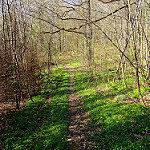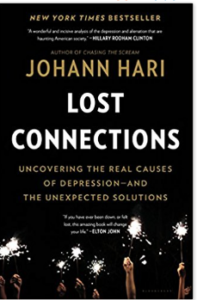How much time do you spend outdoors?
If you’re like most of us, the answer is not much.
The average American spends 90% of their time indoors, according to the Environmental Protection Agency. We spend another 6% of our days shuttling around in our cars. For creatures who evolved outdoors, our time in nature nowadays is shockingly short and often relegated to brief transits in and out of buildings and…yes…cars.
 I am guilty of too much city dwelling as well. But, recently, I spent a week in Maui where those statistics above got reversed. Much of my time was outdoors, swimming and sunning on the beach. (I know. It’s a tough life.) But I was struck by how much better I felt – in every way – when I returned home.
I am guilty of too much city dwelling as well. But, recently, I spent a week in Maui where those statistics above got reversed. Much of my time was outdoors, swimming and sunning on the beach. (I know. It’s a tough life.) But I was struck by how much better I felt – in every way – when I returned home.
Could it have been more than just a change of pace? Could it have been the healing salve of nature?
The poet Rainer Maria Rilke wrote that “if we surrendered to earth’s intelligence we could rise up rooted, like trees.”
Research is proving this to be true in more ways than one. Spending time in nature offers a wealth of physical, mental and emotional benefits. Being outdoors boosts immunity. It reduces blood pressure and cortisol levels. Studies also show spending time outdoors improves concentration and focus, social connection and even creativity. But perhaps, most striking is what being out doors does to our moods. Nature, it turns out, is a natural antidepressant.
Spending an hour and a half in nature helps deactivate the part of our brain that controls negative thinking, allowing us to become less preoccupied with our personal problems, explains Florence Williams, author of “The Nature Fix: Why Nature Makes Us Happier, Healthier and More Creative.” Williams notes that Finnish researchers have discovered that five hours in nature a month can increase overall happiness. (See below for more on the link between depression and our disconnection from nature.)
You don’t have to hike Everest, swim to Cuba or even camp out in your back yard for a weekend to reap the rewards. Just five minutes outdoors will relax your facial muscles and slow your heart rate among other benefits, according to Williams.
All of it is worth bringing some mindfulness to and reflecting on how we not only spend our time, but where we spend it. When was the last time you listened to bird song, basked in the warmth of sun or felt the soft carpet of grass beneath your feet?
On My Mind
Johann Hari’s absorbing book “Lost Connections: Uncovering The Real Causes of Depression – and the Unexpected Solutions” upends traditional theories about how brain imbalances and genetics cause depression. Instead, he proposes another theory: Depression is a disease of disconnection.
Hari’s account, which is part memoir and part investigative journalism, is well researched and surprisingly entertaining. He writes compellingly about how our disconnection from primal needs ranging from community to nature to meaningful work are at the root of what sometimes seems to be a chronic societal sadness.
Hari overstates his argument at times and suggests institutional solutions that may never be achieved. But he nonetheless offers an illuminating view of depression that is undeniably helpful to anyone who may struggle to understand why they feel melancholic or anxious.
“You are not a machine with broken parts,” Hari writes. “You are an animal whose needs are not being met.”
Highly Entertaining
Sometimes government can be inspiring. It’s rare. But in Japan government officials are addressing both our need for nature and our tendencies toward depression by encouraging Forest Bathing. What is that you may ask? Watch this video to learn more: